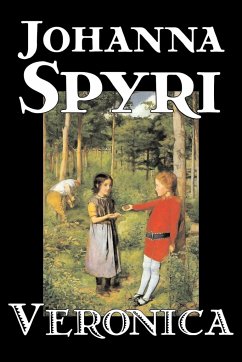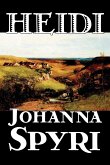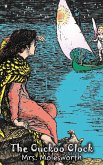"Be still, be still," said the woman. The child's mother was gone, lost to the fierceness of the winter. "I shall find something pretty for you presently; then you must sit down quietly and play with it, and not go outside, not one step, do you hear? Pshaw! there is nothing but rubbish here!" "Well, then give us the rose," said the little girl, still scowling. The woman looked about the room. "There are no roses here," she said. "How should there be, in March?" she added, half vexed at having looked for them. "There," said the child, pointing towards a book that the woman had but a moment before replaced in the cup-board. "Ah! now I know what you mean. So your mother always kept the rose, the 'Fortune rose?' I often envied her when she used to show it to us. . . ."
Hinweis: Dieser Artikel kann nur an eine deutsche Lieferadresse ausgeliefert werden.
Hinweis: Dieser Artikel kann nur an eine deutsche Lieferadresse ausgeliefert werden.








